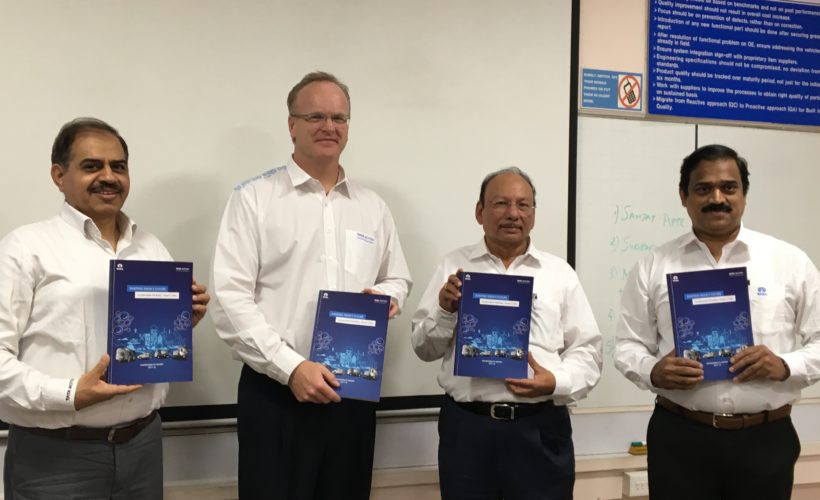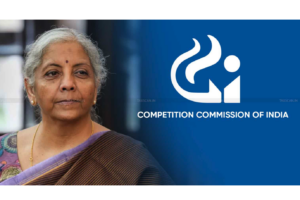
Tata Motors released its 14th Annual Sustainability Report, titled ‘Sustainable Mobility, Smart Cities’,reinforcing its commitment towards ‘Triple Bottom Line’ – Social, Environmental and Economical. The report was unveiled by Satish Borwankar, COO & ED on 31st August, 2018. The report is prepared as per the GRI Standards ‘in accordance – comprehensive’ criteria and externally assured by TUV India. It is also aligned to the principles of ‘United Nations Global Compact’, ‘Sustainable Development Goals’ and ‘National Voluntary Guidelines on Social, Environmental and Economic Responsibilities of Business’ of the Ministry of Corporate Affairs, Government of India.
Tata Motors launched its Sustainability Policy in November 2017, with the aim of creating value, contributing to sustainable development and demonstrate the corporate citizenship. The policy guides in establishing sustainability governance, identification of material sustainability issues and development of sustainability strategies aligned with global and national sustainability commitments. The policy stimulates Tata Motors aspirations to become the global sustainability leader in the transport sector considering futuristic mobility solutions.
Speaking on the occasion, Guenter Butschek, MD & CEO, Tata Motorssaid “With rapid technological advancements in the field of autonomous, connected, electric and shared vehicles, a comprehensive approach to sustainable development of the entire ecosystem is crucial. Tata Motors has been leading the technology changes in the industry while at the same time striving hard to institutionalize sustainable practices in every aspect of business. Our approach to sustainability is not a mere compliance one but a continuous improvement one with inclusiveness at its core. With this objective, we have launched the Sustainability Policy for Tata Motors.”
By aligning the firm’s work with the Sustainable Development Goals (SDGs), Tata Motors has brought about transformational changes not just within the businesses but also for driving change within the societies that they serve globally



